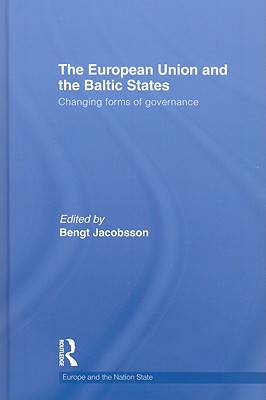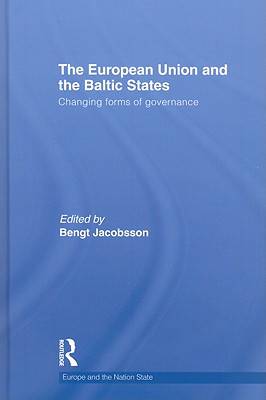
- Afhalen na 1 uur in een winkel met voorraad
- Gratis thuislevering in België
- Ruim aanbod met 7 miljoen producten
- Afhalen na 1 uur in een winkel met voorraad
- Gratis thuislevering in België
- Ruim aanbod met 7 miljoen producten
The European Union and the Baltic States
Changing Forms of Governance
Omschrijving
This book explores how the Baltic States have adapted to, and been embedded in, a wider European environment and how they have become modern European states. It focuses on changes in the policies, politics and administrative practices that have taken place after 1991 in Estonia, Latvia and Lithuania, and on the influence of rules and ideas in the European Union. The authors investigate the meeting between national traditions, rule-making and practices - on the one hand; and traditions, rule-making and practices connected to the European Union - on the other. Drawing on organization theory, and the image of states as complex and fragmented organizations, this book discusses:
- The forms of governance that are directed towards states, differentiating between regulative, inquisitive and meditative activities.
- The logic of appropriateness and the scriptedness of states. To what extent do the states have to follow the rules, and to what extent are they able to do what they want themselves?
- Adaptation processes in the state organizations.
This book examines how European integration prompts and accelerates new forms of governance in Europe; it will be of interest to students and scholars of politics, the European Union and the Baltic states.
Specificaties
Betrokkenen
- Uitgeverij:
Inhoud
- Aantal bladzijden:
- 208
- Taal:
- Engels
- Reeks:
- Reeksnummer:
- nr. 12
Eigenschappen
- Productcode (EAN):
- 9780415482769
- Verschijningsdatum:
- 1/08/2009
- Uitvoering:
- Hardcover
- Formaat:
- Genaaid
- Afmetingen:
- 165 mm x 242 mm
- Gewicht:
- 449 g

Alleen bij Standaard Boekhandel
Beoordelingen
We publiceren alleen reviews die voldoen aan de voorwaarden voor reviews. Bekijk onze voorwaarden voor reviews.











